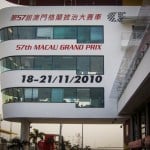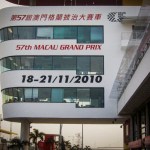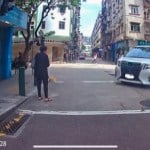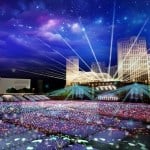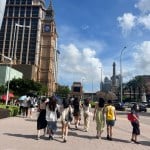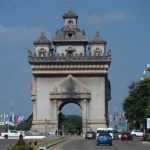T Court of Final Appeal (TUI) has ruled against a local architect seeking compensation from the Macau SAR over an alleged infringement of his copyright.
The case centers on the former Grand Prix Tower building, which the architect designed in the early 1990s.
Although the case does not directly involve the building itself, it pertains to the government’s creation of six replicas of the building that were used in promotional activities.
The architect claimed that he was neither consulted nor authorized the production of these replicas of the original building, or the use and publication of a series of photographs of the building on the Grand Prix (GP) official website, which did not credit him.
Initially, the architect brought the case as an action for non-contractual civil liability against the Macau SAR and a representative of the government in charge of the GP Committee at the time before the Administrative Court.
The author was seeking nearly MOP4 million in compensation for alleged copyright violations.
Before the case reached TUI, the Administrative Court acquitted the defendants because there was no specific wrongdoing attributable to them.
Unhappy with this decision, the author appealed first to Court of the Second Instance (TSI), and then to TUI, after TSI dismissed the charges. TSI pointed out that the architect’s rights to the building were transferred to the SAR upon payment for the architectural project, while he retained personal rights related to the integrity of the work and the right to be identified as the author.
The same court stated that neither the disclosure of the photographs nor the exhibition of the replicas in question violated the architect’s moral rights.
The same reasoning was used to dismiss the claims related to the exhibition and publishing of the photographic records.
TUI reached the same conclusion, noting that, particularly with regard to the photographs of the building, the photos were not taken by the architect, and only the motif of the photos had any relation to the architect.
Since there was no proven damage, TUI ruled that compensation could not be granted, ultimately dismissing the case.
The architect has been in ongoing legal battles with authorities since it was announced that the project, concluded in 1993, would be undergoing a complete revamp 20 years later, resulting in the current Grand Prix building, which was inaugurated for the 60th edition of the GP.
At the time, the same architect had also claimed that the new project was not a new building but an alteration made to his original project, sparking the legal battles with the Macau SAR.


















